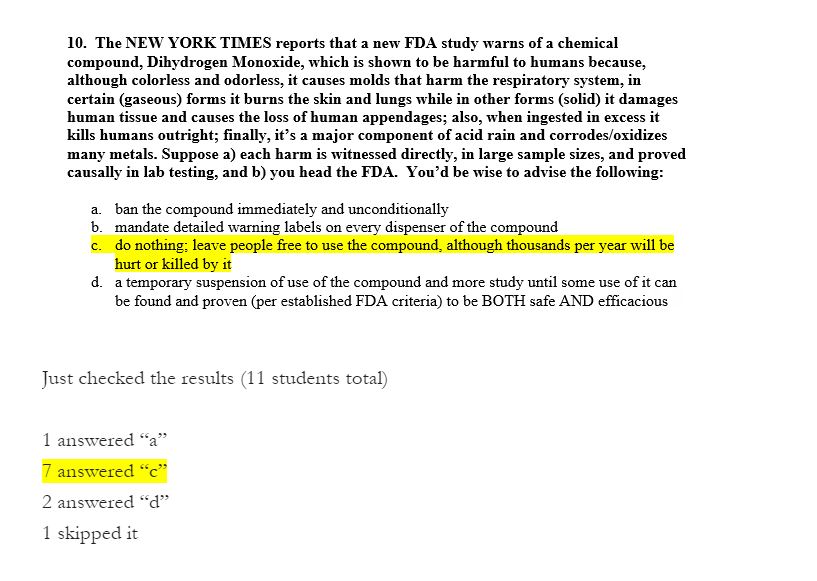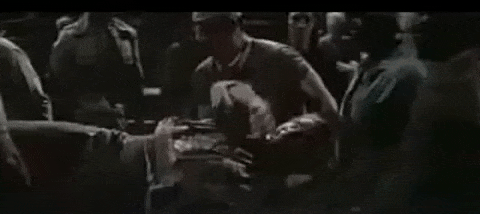In 2015 I wrote about how easy it was for polls to find people in support of highly restrictive safety regulations, even outright bans, on things that sound scary to them, if they don’t stop to think about it first — or worse, if they don’t even realize they should seek more information about it first.
[C]hemical names devoid of their familiar context tend … to sound extremely dangerous to the general public. Conscientious researchers must be aware of this tendency. Unprincipled polling firms, special-interest outfits, and demagogues not only know it, they exploit it.
Researchers have demonstrated how easy it is to generate significant public support for an absurd ban of an unfamiliar-sounding chemical with certain dangers. The chemical, identified as “dihydrogen monoxide” to interviewees, is said to be “routinely used” by the chemical industry “in significant quantities,” “often leads to spillages and other leaks,” and worse, “regularly finds its way into rivers and into our food supply.”
Furthermore, this chemical’s listed effects include being a major component of acid rain, a contributor to erosion, a major greenhouse gas in its vapor state, a presence in the tumors of terminal cancer patients, and often fatal if accidentally inhaled.
Given that information, over three- fourths of respondents favored banning the substance.
I’ve been thinking about this tendency in terms of poll findings in support of knee-jerk government shutdowns over COVID-19, instead of trusting people to take sensible actions themselves. Restaurants were already making health-conscious changes, as I’ve shown, and as my colleague Jon Guze wrote this morning for Carolina Journal, it turns out people were in fact adjusting their behavior before the government cracked down.
Duke professor Michael Munger wrote on Twitter this morning that a colleague asked the dihydrogen monoxide question as an exam practice question:

The bad news is that three out of ten answered in favor of restricting or banning it. The relatively good news, at least, is that seven chose option c:
[D]o nothing; leave people free to use the compound although thousands per year will be hurt or killed by it
That’s better than a supermajority favoring an outright ban.

You gotta tell ’em … dihydrogen monoxide is WATER!


